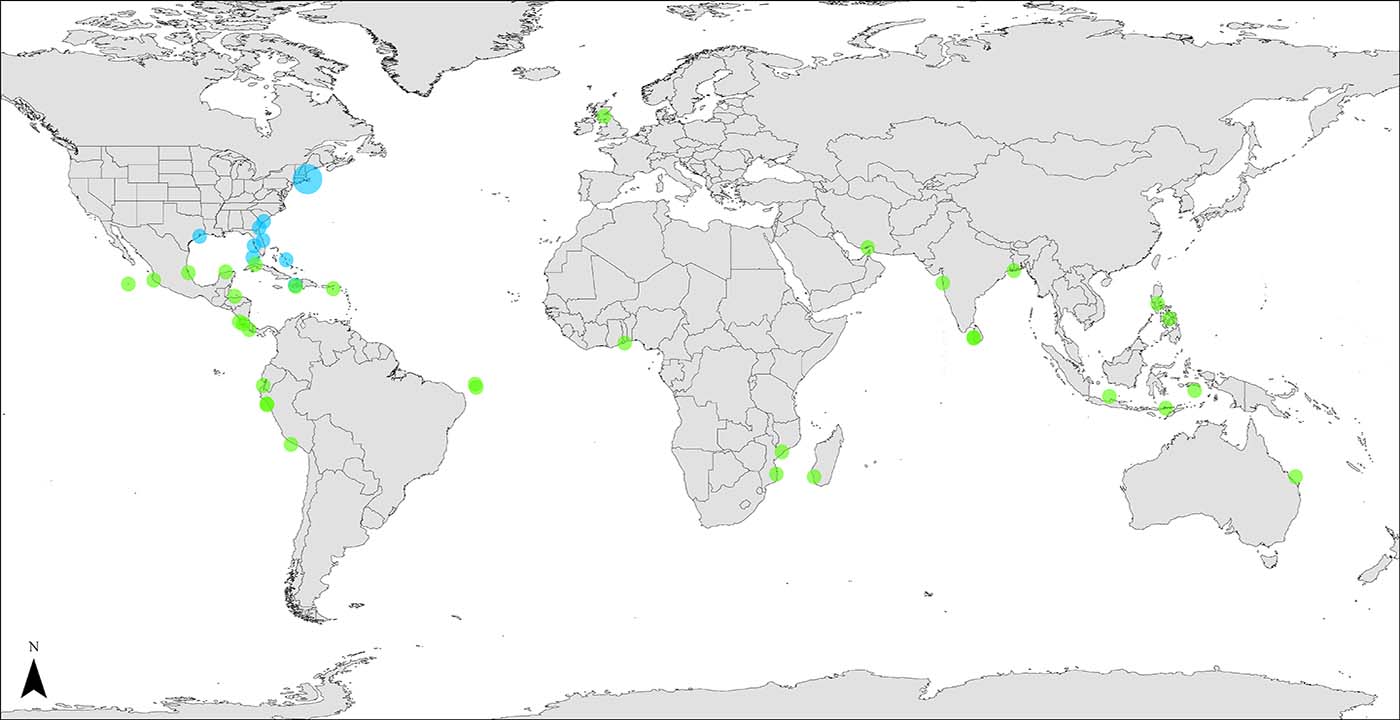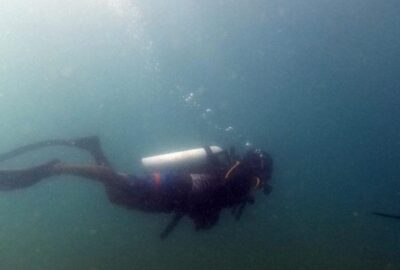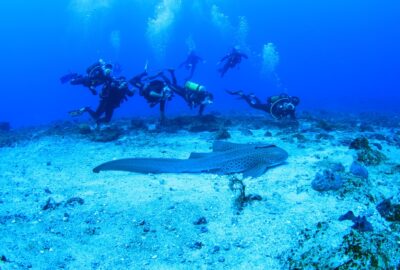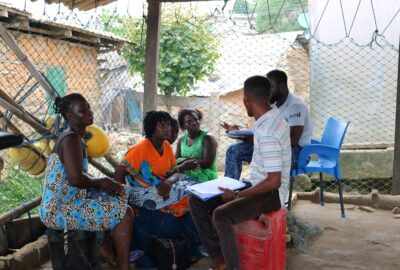MCAF Project Leaders and Fellows Work to Protect Sharks Around the Globe
For Shark Week, learn more about some of these ocean leaders and their work.
By New England Aquarium on Monday, July 08, 2024

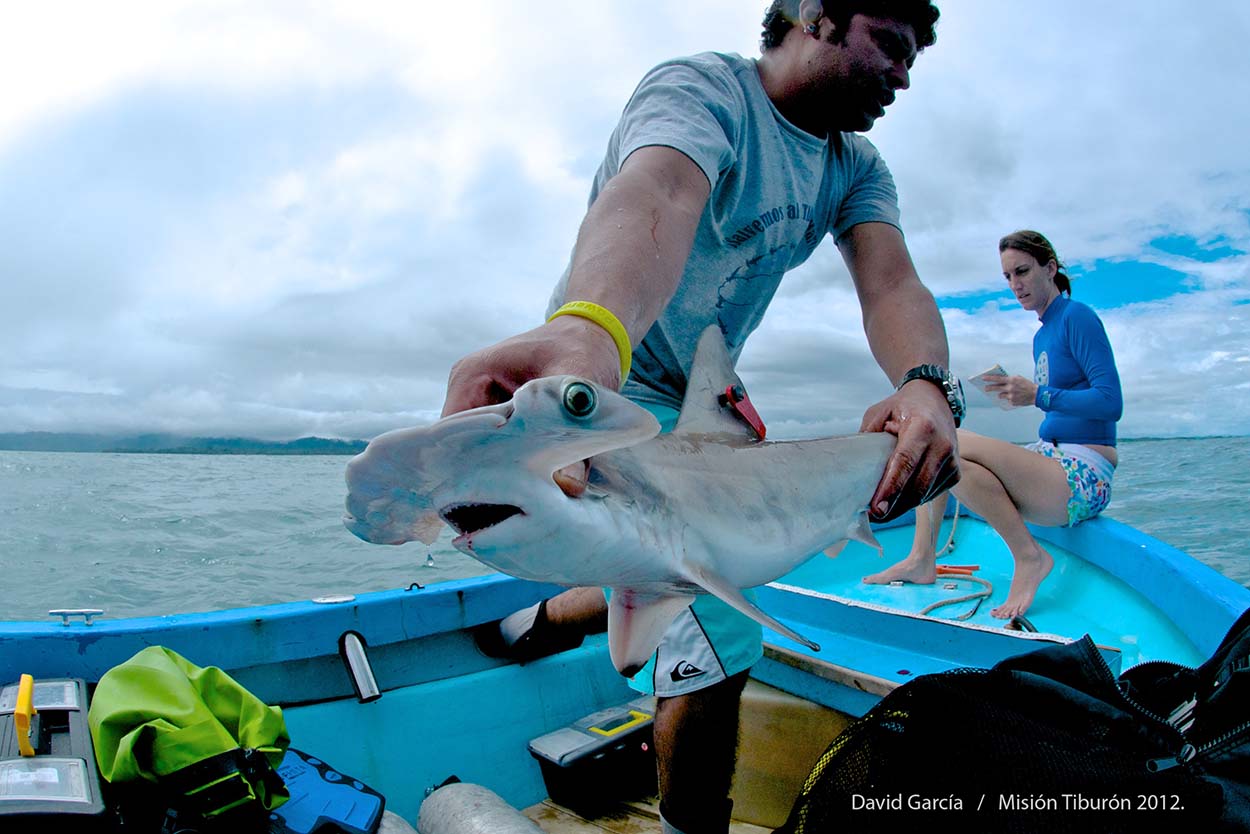
The Aquarium’s Marine Conservation Action Fund supports the work of ocean leaders in low- and middle-income countries who are spearheading community-based conservation projects across the globe. Here, meet some of the MCAF fellows and project leaders who work within their communities to help protect sharks and promote a healthy ocean.
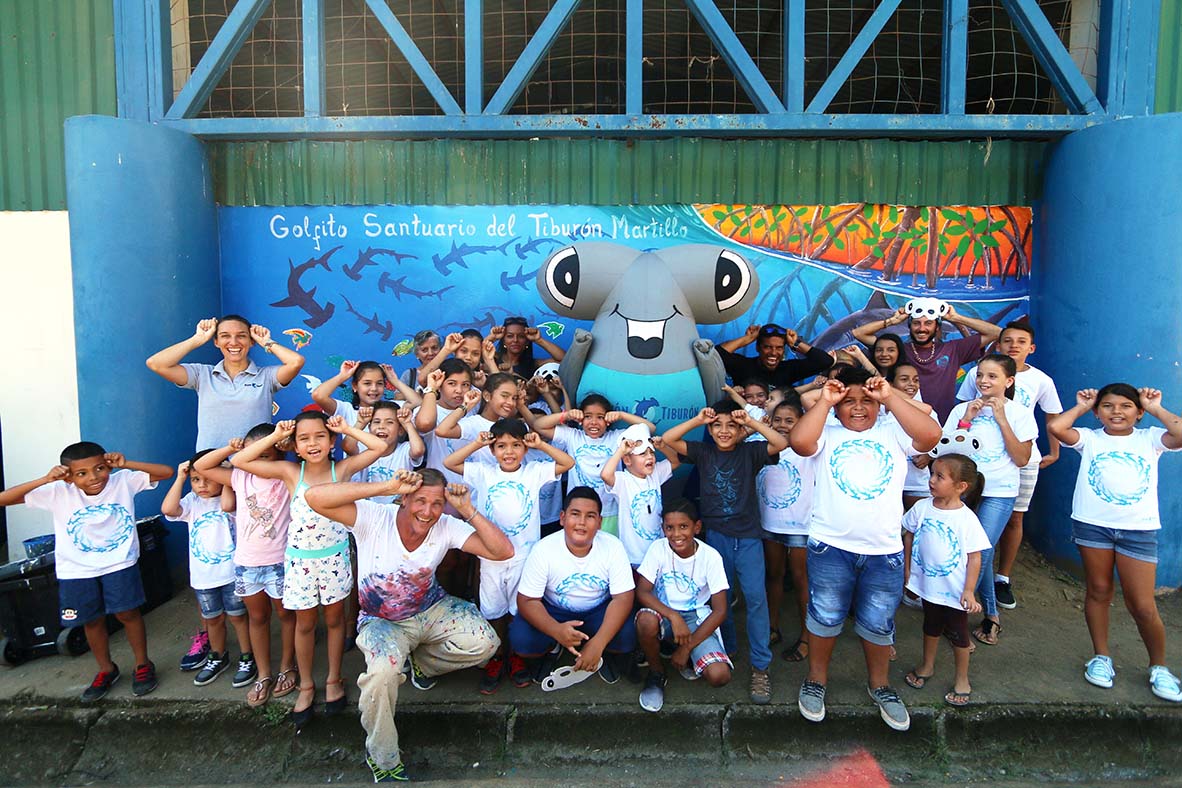
Andrés López & Ilena Zanella, Misión Tiburón
MCAF fellow Andrés López and project leader Ilena Zanella founded Misión Tiburón to help preserve sharks and rays in Costa Rica. Through their organization, they work with local fishers to promote management efforts to protect sharks and connect with coastal communities to spread awareness about the importance of a healthy ocean.
Their efforts to protect the critically endangered scalloped hammerhead shark led to the formation of Costa Rica’s first-ever shark sanctuary in Golfo Dulce.
Anna Oposa, Save Philippine Seas
MCAF fellow Anna Oposa is the executive director and “Chief Mermaid” of Save Phillippine Seas (SPS), a movement to protect the Philippines’ coastal and marine resources by mobilizing citizen-led initiatives for collective action and behavior change.
As part of their work, Save Philippine Seas leads a community-based initiative in Malapascua Island, Cebu, to protect thresher sharks through the Shark Shelter Project. SPS also co-founded the Save Sharks Network Philippines, a coalition of organizations in the country’s scientific, NGO, and tourism communities, which has led a number of efforts, including work to create legislation that protects sharks in the Philippines.
Gabriela Ochoa, Ilili
Gabriela Ochoa of Ilili is a marine biologist and newly funded MCAF project leader. Ilili works throughout Honduras with the mission of improving the conservation of marine ecosystems and species through training future ocean leaders, research, and collaboration with local communities.
Gabriela’s funded project aims to “strengthen the technical capacities of government institutions and organizations working with sharks in Honduras, conduct a comprehensive assessment of shark conservation status, and involve local shark fishers in research activities.” To accomplish these goals, Gabriela’s project will include training workshops, presentations, market analysis, and working with diverse stakeholders.
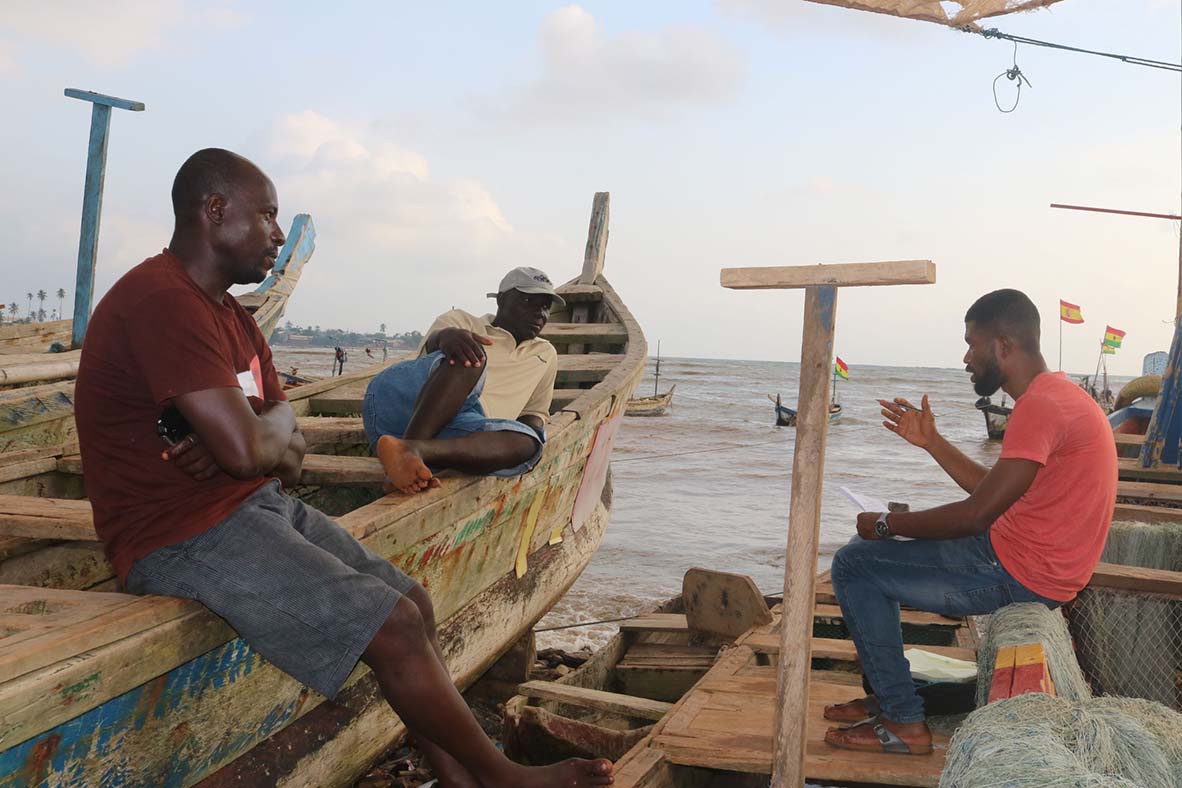
Issah Seidu, AquaLife Conservancy
Issah Seidu is an MCAF fellow and the founder of the Ghana-based Aqualife Conservancy, an NGO dedicated to research and conservation of marine and freshwater biodiversity. Issah works closely with local fishers, who often catch sharks and rays for their livelihood, and other fishing industry stakeholders to establish conservation strategies for threatened species.
Read more about Issah’s work in Ghana.
Rafid Shidqi, Thresher Shark Indonesia
Since 2018, Thresher Shark Indonesia, co-founded and directed by MCAF fellow Rafid Shidqi, has been working with local communities on Alor Island, Indonesia, to protect the endangered thresher shark. People living on the island, especially in Indigenous communities, rely on thresher sharks as an important source of food and livelihood. Shidqi and his colleagues work closely with these communities to help establish protected habitats for thresher sharks and educate local fishers on practices that preserve shark populations.
Recently, Rafid presented research results around pelagic thresher sharks in the Banda Archipelago, Indonesia, at the North American Congress for Conservation Biology (NACCB) in Vancouver, Canada. Beyond scientific data, Rafid shared Thresher Shark Indonesia’s social science approach to conservation, including how they engage indigenous young people of Alor in community-based shark conservation.
Watch Thresher Shark Indonesia’s new short documentary, “Long Tails and Long Lines: A Story of Community Empowerment.”
Daniel Fernando, Elasmo Project/Blue Resources Trust
As a co-founder of the Blue Resources Trust and principal scientist of the Sri Lanka Elasmobranch Project, MCAF fellow Daniel Fernando is working to help better understand which sharks are being caught in small fisheries across Sri Lanka. Because many Sri Lankan fishers work from small boats, data collection can be a challenge. Daniel and the team spend time at fishing sites in Sri Lanka’s eastern province to meet with fishers, identify species in their catch, and engage with the community about conservation efforts.
MCAF has helped support Daniel and Blue Resources Trust’s work since 2012, including support for developing Sri Lanka’s first shark and ray genetics lab. Blue Resources Trust will also host the Sharks International Conference in 2026 in Sri Lanka, ensuring the conference will be more accessible for researchers from the majority world.
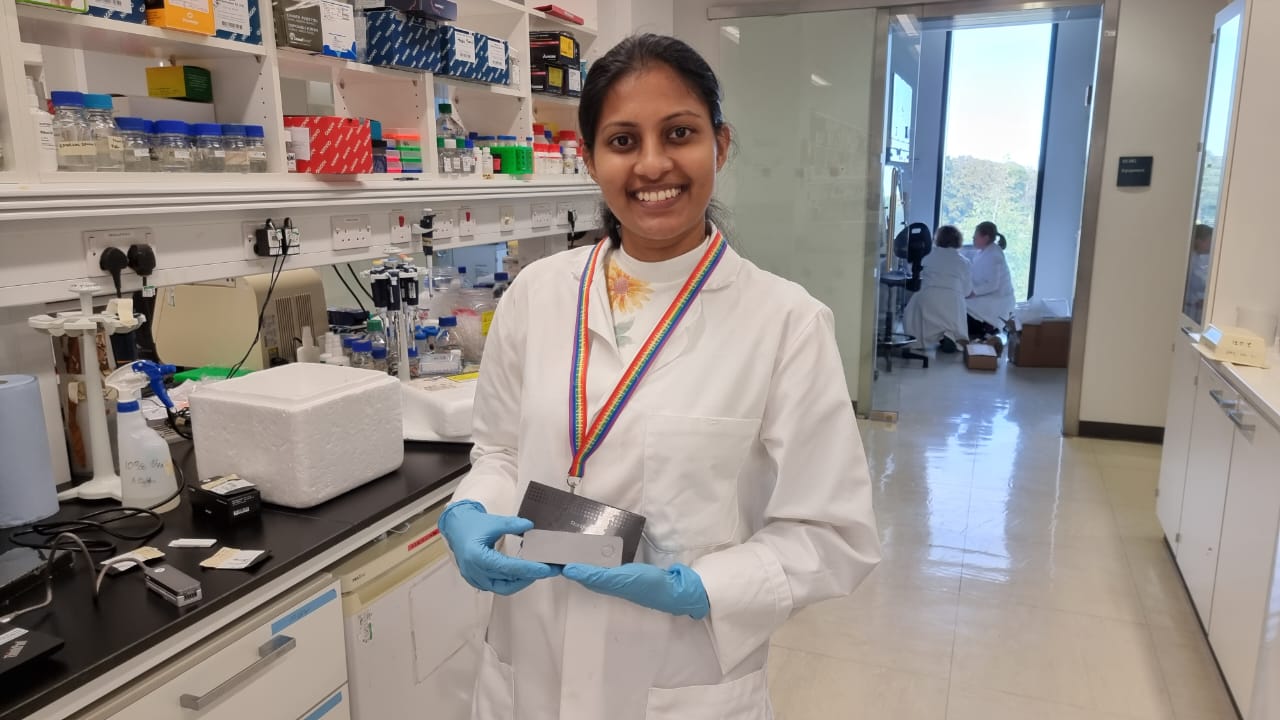
Lankika Anjani, Blue Resources Trust
In 2022, MCAF awarded Lankika Anjani an Early Career Ocean Professionals (ECOP) grant for her work with the Blue Resources Trust. As a researcher there, Lankika uses novel genetic methodology to identify species of sharks and rays caught in small-scale fisheries in Sri Lanka. The hope is that, in a future stage of the project, the data can combat species misidentification, which can result in shark products being sold as generic fish in markets and global trade.
Learn more about Lankika’s work in this recent story from Forbes.
Alejandra Mendoza, EcoOceanica
Alejandra Mendoza, who received a bachelor of science in fisheries engineering at La Molina National Agrarian University in Peru, recently received an MCAF grant for her work with EcoOceanica, where she is co-leading a project to protect whale sharks.
Working in collaboration with Tiburón Ballena Mexico, Alejandra and her colleagues are conducting a first-of-its-kind initiative to study whale sharks off the Peruvian coast, collecting data on their abundance and migrations throughout the year.
Faqih Akbar Alghozali, Elasmobranch Project Indonesia
MCAF project leader Faqih Akbar Alghozali co-founded Elasmobranch Project Indonesia, a citizen science project that relies on input from the public to map the distribution of sharks, rays, skates, and chimaera throughout Indonesia.
To contribute data to the project, participants can make a report and supply a photo from a sighting in the wild or from fishing boats, harbors, and markets. Their work helps spread awareness of conservation efforts and contributes to a better understanding of the diversity of sharks and other elasmobranchs in Indonesian waters.
Elasmobranch Project Indonesia also works with Java Sea fishers to spread awareness about shark and ray conservation, including best practices for catch and release and how to report shark sightings.
